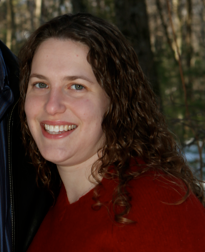|
rebecca.truty [at] gladstone.ucsf.edu
The Gladstone Institute of Cardiovascular Disease |
 |
Academic Bio
I earned my BS in Physics at Rensselaer Polytechnic Institute in Troy, NY in 2005.
I did my doctoral work in experimental physics at the University of Illinois, Urbana-Champaign in Naomi Makin's group. My work focused on the analysis of data from the HERMES experiment at the DESY laboratory in Hamburg, Germany. In particular, I looked for signatures of spin-orbit correlations of quarks within the proton. I finished my PhD in 2010.
Currently, I am a postdoctoral researcher in the Pollard lab at the Gladstone Institutes and the University of California, San Francisco.
Research Interests
I am generally interested in applying my skills in data analysis to biological data to learn about human health and disease. Thus far my biological work has been focused in two diverse areas, gene regulation and the human microbiome.
Gene Regulation
While the human genome has been sequenced it is still poorly understood how "genetic programs" encoded in DNA are turned on and off at the right moment to affect the development of an entire person from a single cell. Several factors contibute to genetic regulation, including epigenetics and non-coding DNA elements such as enhancers.
While extensive work has been done in recent years to identify enhancers both experimentally and computationally, the specific gene target of an enhancer is only known in a few well studied cases. I am developing a machine learning approach to computationally identify the gene targets of enhancers by making use of data generated by the ENCODE project as well of other publically available data. This work is still in progress.
In collaboration with others at the Gladstone Institute for Cardiovascular Disease, I am studying the changes in epigenetic states during the course of cardiac cell development. A better understanding of the epigenetic mechanisms behind cardiac development will eventually lead to better diagnosis and treatment of the ~1% of children born with congenital heart defects. This work has been published in Cell.
The human microbiome